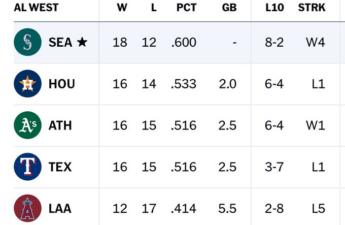Today, I feel like I finally hit my stride for productivity and balance this vacation. I return to work on Wednesday.
I’d imagine this is a lot like what retirees feel in their waning weeks of work at a particular vocation, feeling a sudden rhythm and a smoothness they never felt in anywhere from months to decades of prior toil. Of course, it’s insidiously endemic to the nature of the impending closure. Only with the mix of relaxation and appreciation that comes from imminent cessation can we find the peace and ease to not take what’s in front of us so seriously. It’s because we’ve unlocked that there’s a life beyond what’s immediate and routine, and only then can we approach said immediacy without the pressure of its drumbeat of routine.
This conundrum prompts a lot of people to try to split the difference, to find a way to see beyond seeing and cultivate that wakefulness and ease of daily living into their actual daily living, as though they know it’s all set to end, even if it’s not. Such people, unfortunately, tend to also be fervent users and advocates of marijuana or other similarly minded substances, and the outcome is probably a lot like being stoned. Or maybe like Christian Science, which is oddly similar, wherein one is not allowed to take one’s diseases or their symptoms seriously with anything other than prayer and the faith that God will heal them. The problem is that even if one knows it’s all going to work out in the end, throwing up one’s hands and signing everything over to that fact seems strangely to violate the initial principle. It’s as though there’s some unwritten rule that one has to try in order to activate the part where things work out. And this is, ultimately, only in a theology where everything somehow works out for the best, which is very much in play these days. And while recent events of the past few years haven’t quite shaken my faith in God (as I feel no personal tragedy that one hasn’t already been aware of someone else experiencing should), describing this planet as everything working out seems at times short-sighted.
Maybe the best we can hope for are the brief moments of clarity that cannot be manipulated or contrived into existence. Sometimes we simply cannot understand how much we care for something that is lost until it has been lost. We cannot grasp how meaningful something is until it’s already transpired. We cannot anticipate the things that are most vital until it is already too late to grab them.
I was listening to a broadcast of a funeral of one of the Aurora movie shooting victims the other day and her brother or boyfriend tearfully admonished us to not delay our dreams but pursue them immediately because we don’t know how much time we have left. But it’s precisely because we don’t know how much time we have that most of us won’t go out and do that. If I told you the date of your death, you could start planning immediately exactly how far to pursue those dreams and when to switch gears. And despite a million exhortations to live each day as if it were our last, most of us are more moved by the fable of the ant and the grasshopper, droning away for a future winter that may never arrive.
I can’t quite put myself in the grasshopper camp these days, despite the fact that I feel now doubly living on borrowed time and that I truly love my job coaching debate. I spent today revamping the Book List (update will be out later tonight or early tomorrow and will be linked from this blog) instead of writing publishers or agents about American Dream On or The Best of All Possible Worlds, works I truly believe to be the best things I’ve ever done with my time on this planet but have yet to be read beyond a handful of people (especially the latter). I spent some time this week reviewing ADO as prompted by a new reader and found it far more relevant that I remembered it, reigniting the hope that it’s not left stillborn to only impact a handful of people. And yet the incredible uphill climb of wrestling with a publishing industry somewhere between slow lumbering death and reinvention, in a country mired between same, seems exhausting in utero. As it probably always has. And being confronted with the weight of the 1,277 favored books of the readers and submitters of The Blue Pyramid only enhances this fatigue.
The thing is, almost all of the twelve-hundred-plus volumes were written in the twentieth century. There are classics that have been handed down through the ages, dating back to Homer and Plato, but the vast majority of the books therein have been written within a lifetime of now. You can say that this is about the fact that the world has changed so much as to make even Dickens and Dostoevsky of borderline dubious relevance in a contemporary world. Or perhaps that seven-billion is such a high percentage of those who’ve lived during the history of writing in our human experience that the last lifetime is actually proportionally represented. Both of these are decent arguments, but the fact is that a 2112 list would probably draw equally largely from the twenty-first century. (Or perhaps, I suppose, the list would be of favored tweets or cat videos, as those contain the requisite length to command a 2112 attention-span.) But I fear it’s just that almost nothing that gets written has staying power beyond the time it was written in.
I’m currently almost done with Don DeLillo’s Libra (not among his two entries in the 1,277) and it’s so clearly a relic of the period from 1963-2001, when the JFK assassination was the focal point of culture, experience, innocence, conspiracy, and intrigue. The book is fast-moving and entertaining, but I can’t help but remark at how naive and obvious the purportedly daring accusations and connections made in the book appear. Or how irrelevant the JFK assassination seems to a 2012 world. Even remembering my AP Economics’ professor’s habit of spending the month of February on the JFK assassination (a personal hobby of his) instead of teaching econ seems somewhere between embarrassing and sad when it used to be the epitome of cool.
I am having that distinct experience of those who age on this planet that the world one grew up in is not the world in which one will die.
No sentence could be more mundane in its obvious factual truth. And yet waking up to the reality seems to stun every one of us as much as the ease of doing something we can no longer do after a very short time. Indeed, so many are mired in the process of constantly reawakening to that reality like so much shock at the sun’s daily reappearance overhead.
The inability of media to readjust to the world is unendingly apparent. Never before have so many writings and movies been set in the just-before-recent past, mostly so that plots can deftly avoid cell-phones, the Internet, and all the hijinx-prevention that we imagine those inventions to enact. The recent Woody Allen movie, which is horrendously nihilistic, hinges on the improbability of someone dropping their cell down a sewer grate rather than grapple with the realities of the world ever-connectedness has created. I’m sure someone or several someones out there are writing and creating masterworks on the changes that this technology is creating (other than imagining that the Joker can rig up a cell in someone’s stomach and use his designated one jailed phone call to blow the whole joint), but it doesn’t seem to be making it to my desk or movie theater. Inevitably, it will happen, though, ushering a new era of reading and flushing out many of the currently enshrined 1,277.
It’s enough to make the entire act of writing seem futile, even more than living in a mundane or newly reawakened way already might. (I know, children’s birthday parties again.) But seriously, what is the hope of writing something to impact a species when that impact, even at its greatest, is unlikely to live beyond one’s lifetime? It is questionable whether any of the people we consider geniuses in creative fields today will have their names remembered in 2150. And 2150 is where all this is headed, so what chance of changing things?
The only candle in this darkness, of course, is that 2150 doesn’t exist yet and the only people who will make it happen are currently ensconced on the planet, living and (hopefully) absorbing creative culture. Barring the landing of some alien species that can successfully breed with us, every ancestor of 2150 is alive today. Which is even more jarring to consider when reflecting it backwards, spinning our history into past generations. No wonder the Bible is full of passages of begats and sex is considered a holy act by so many. Hundreds of us would be wiped out instantly with the revocation of any given inseminative sex act of 1000 AD.
Makes you think about your choices, doesn’t it? Every one one of us really does have an impact!
Is the lesson then that rearing children has far more impact than writing? Perhaps. Though of course the writing of the day also influences the writing to come and the entire evolution of everything, not just procreation itself. It’s hard to imagine how different the future of our culture will be just from the success of Harry Potter alone, let alone the aggregate of the 1,277 tomes compiled in the Book List.
And yet you probably don’t know a single person who has read 1,277 books in their entire life. The sum of all we created has only the most tangential reach on any one of us.
I’ve been listening to a lot of “This American Life” podcasts lately, working my way backwards through their archive sprinkled with the new ones as they come out. (Though a startling number of the current broadcasts are reissues, to go with the summer movie theme of nothing original anywhere ever.) I’m somewhere in mid-2010 now, just listening to their 400th episode wherein they challenged the whole production team to make stories from what their parents had pitched to them over the years. The moral of the episode was that the effortless blend of pith, wit, pathos, and ultimate fullness of the average “This American Life” story is actually very hard to replicate. That coming across seeming like they just took anything and ran with it is actually the result of careful selection and practice, that the appearance of spontaneousness requires rehearsal. This all comes to a head in this perfectly distilled moment when Ira Glass’ dad finishes telling a story and Glass prompts him by saying this is the moment when, on the show, the story says something deeper about the human or at least American experience. His father snorts and notes that there’s nothing like that to see here.
There’s nothing like that to see here.
No. I’m just kidding. The deeper point here is that you might not be able to perceive your own impact, but that doesn’t mean you aren’t having one. This is something almost magical about living in a temporal world. No one gets to cheat, no one gets to bend into the future. We’re all alive now, and not a moment later. And this gives us all the potential to affect everything to come, no matter how much or how little.
No matter how little you’ve done, you haven’t seen what’s to come. And you will help shape that, whether you want to or not.
Maybe, just maybe, that will help give you enough of a fire to make that perfect connection in whatever you seek to do just a little sooner before you stop doing it.


